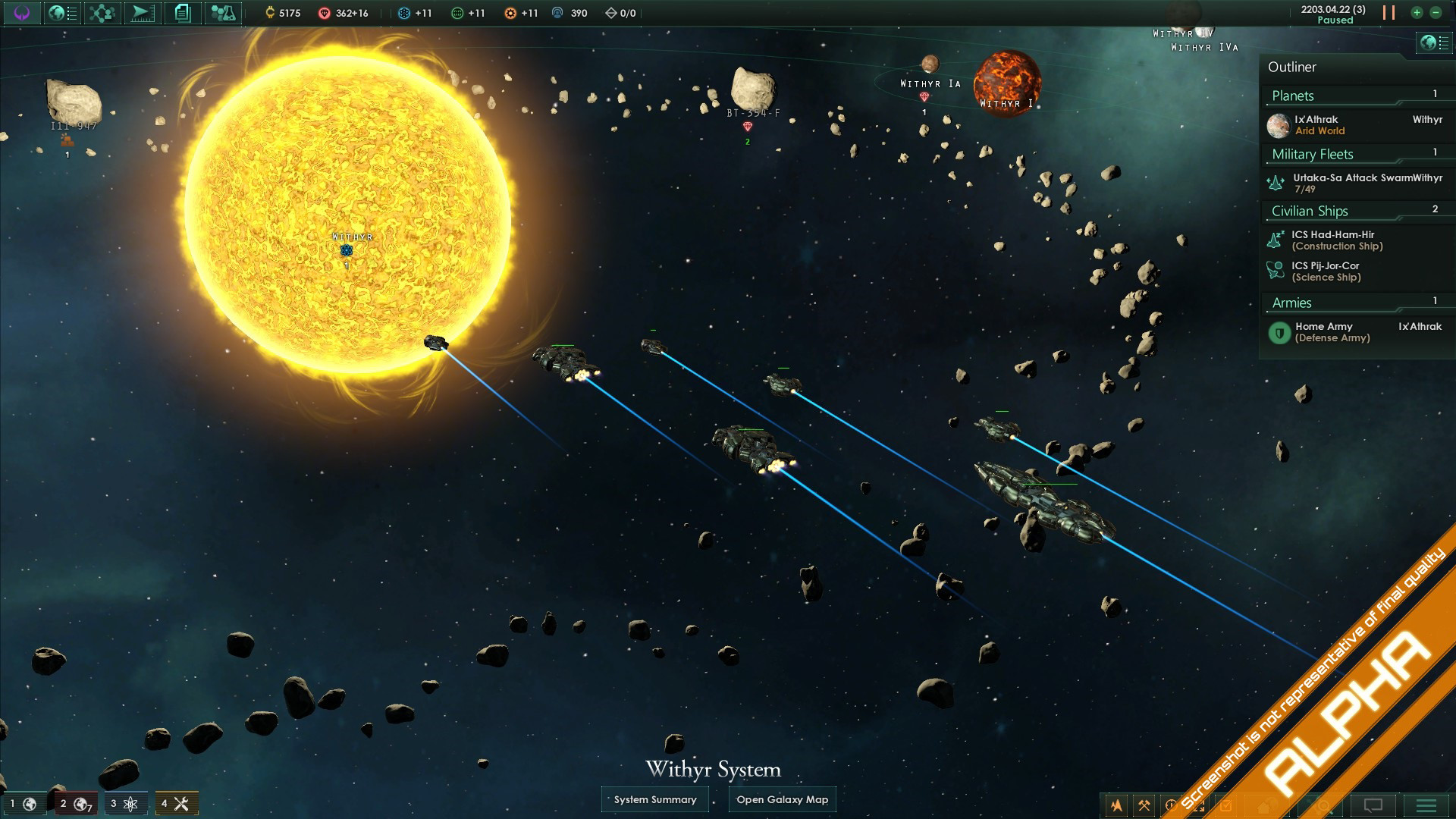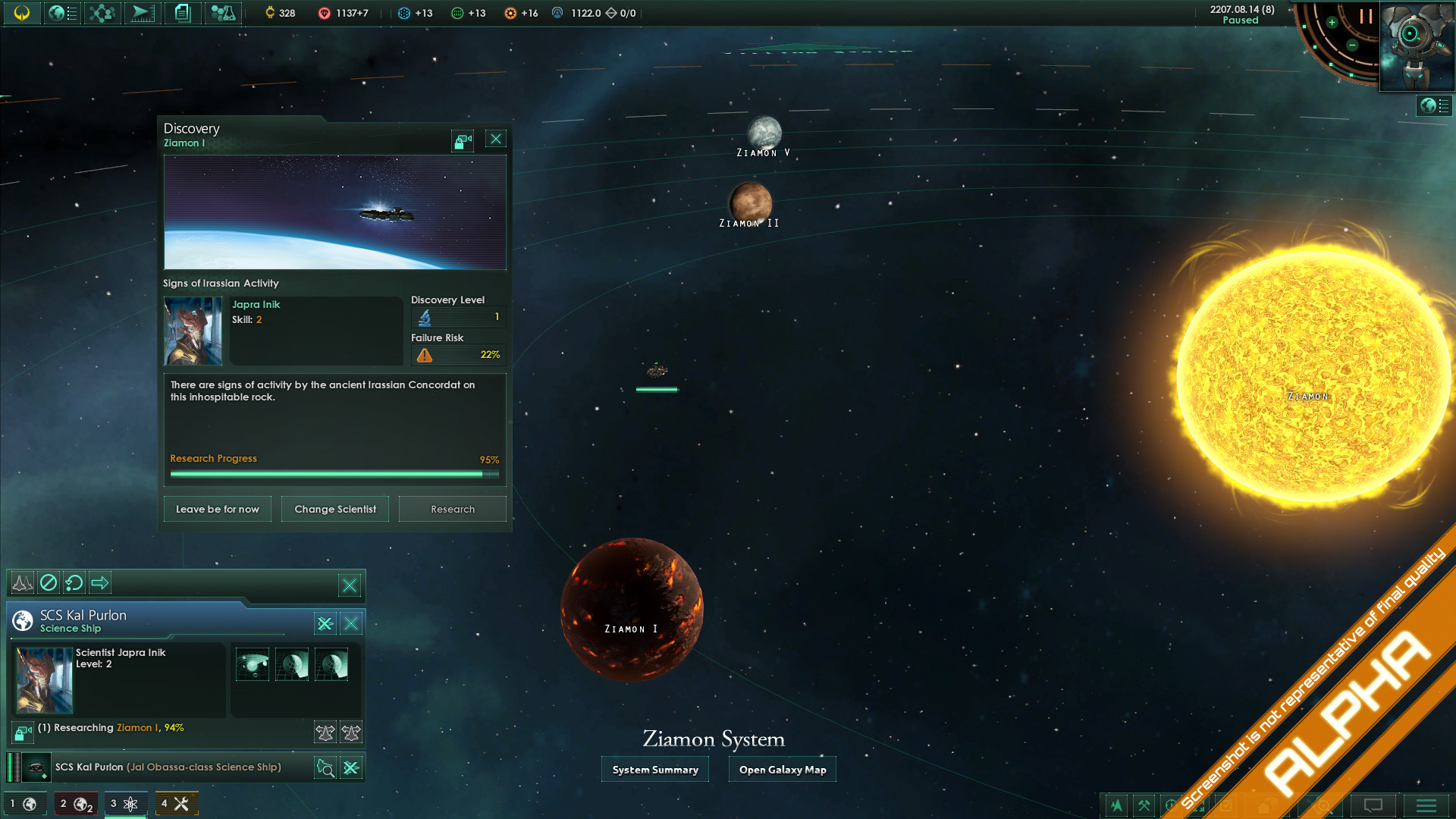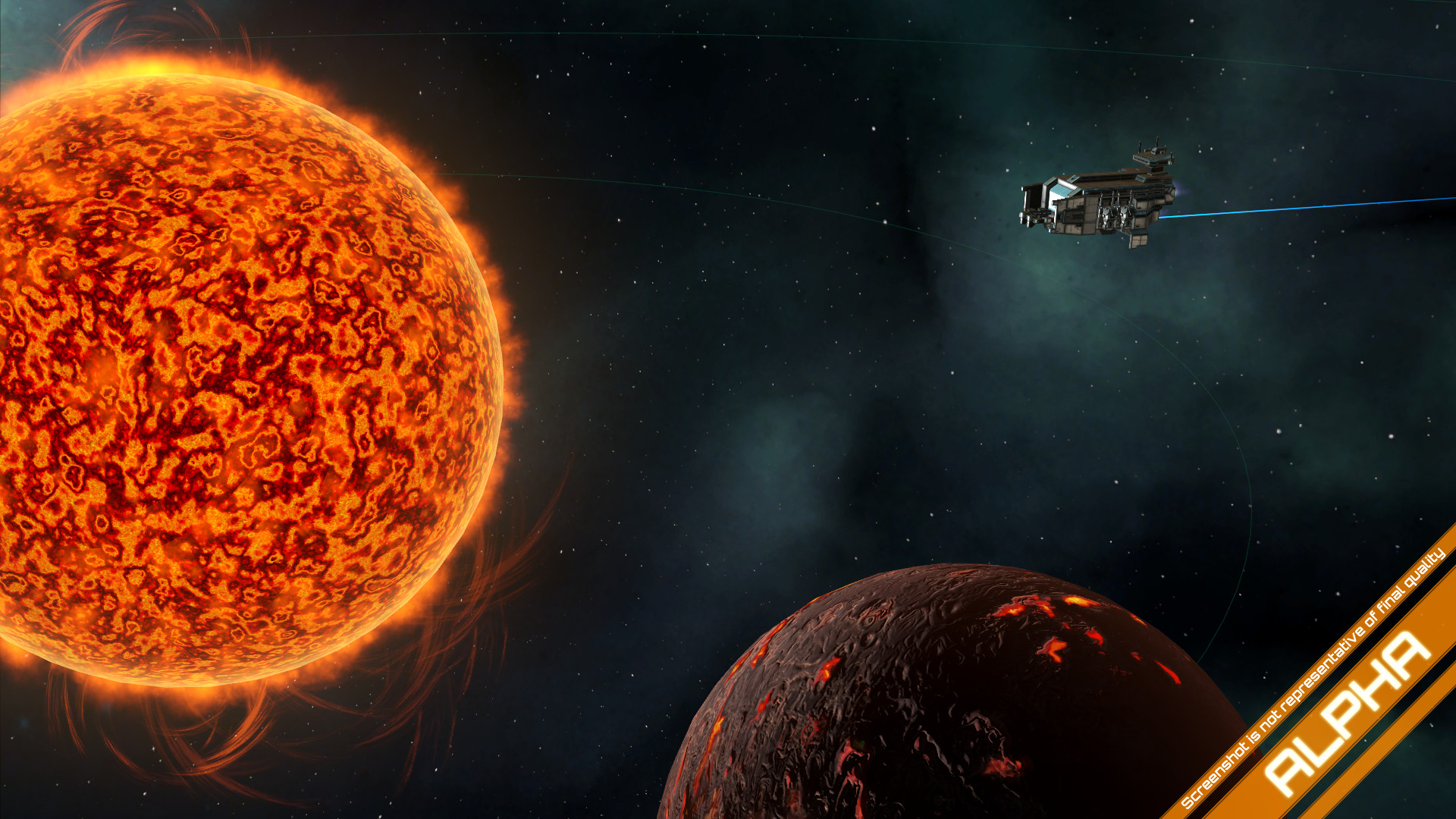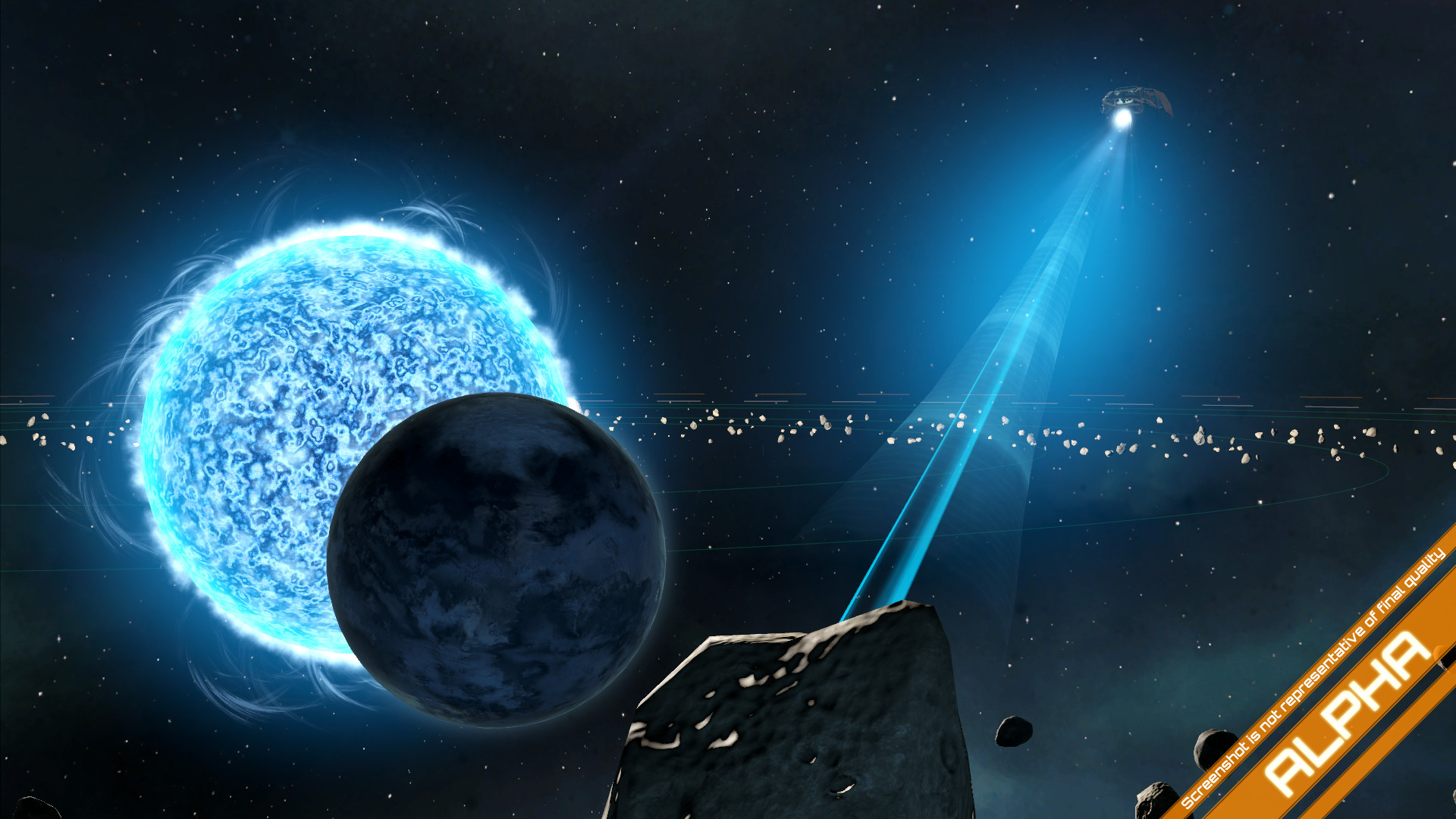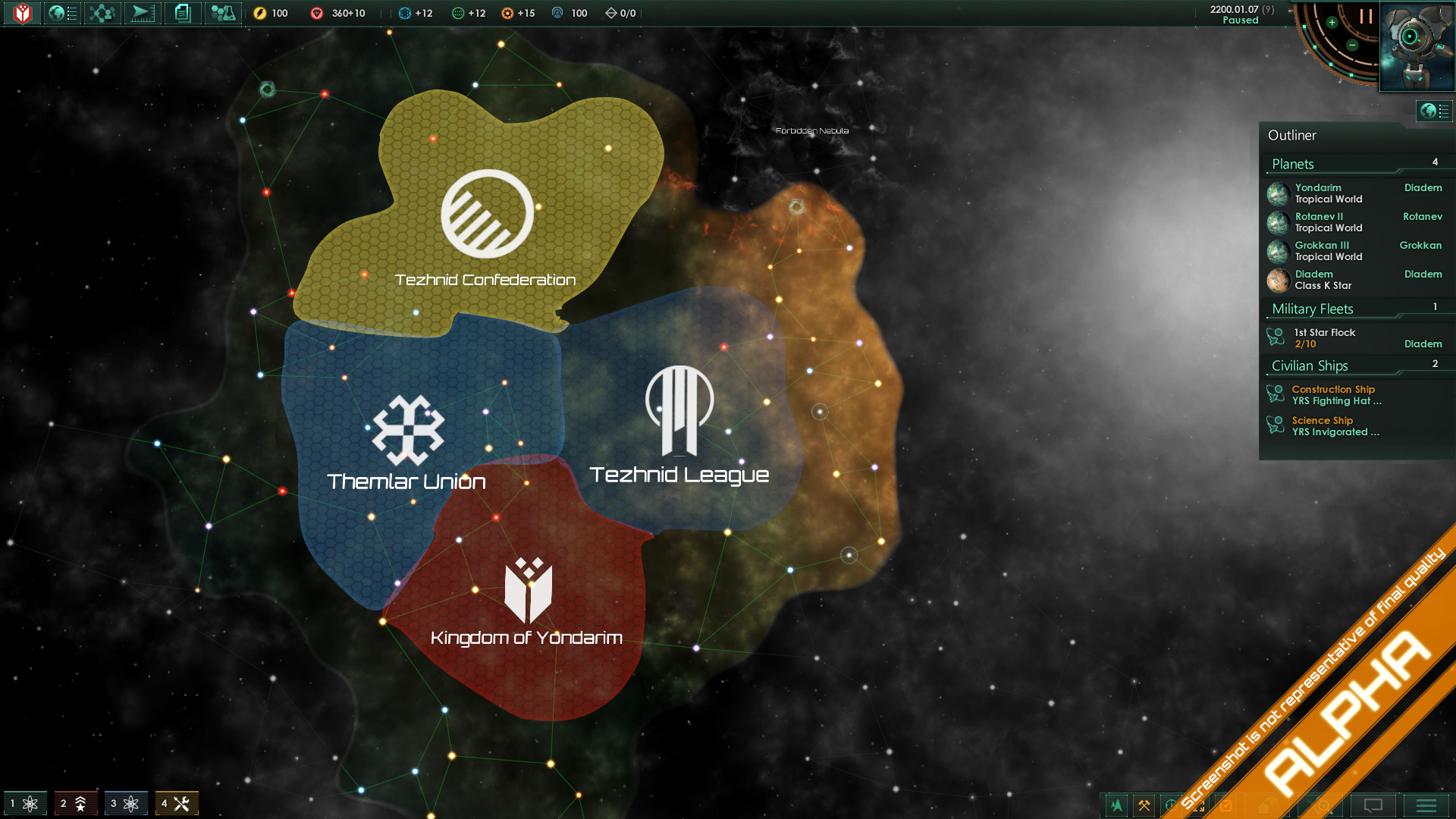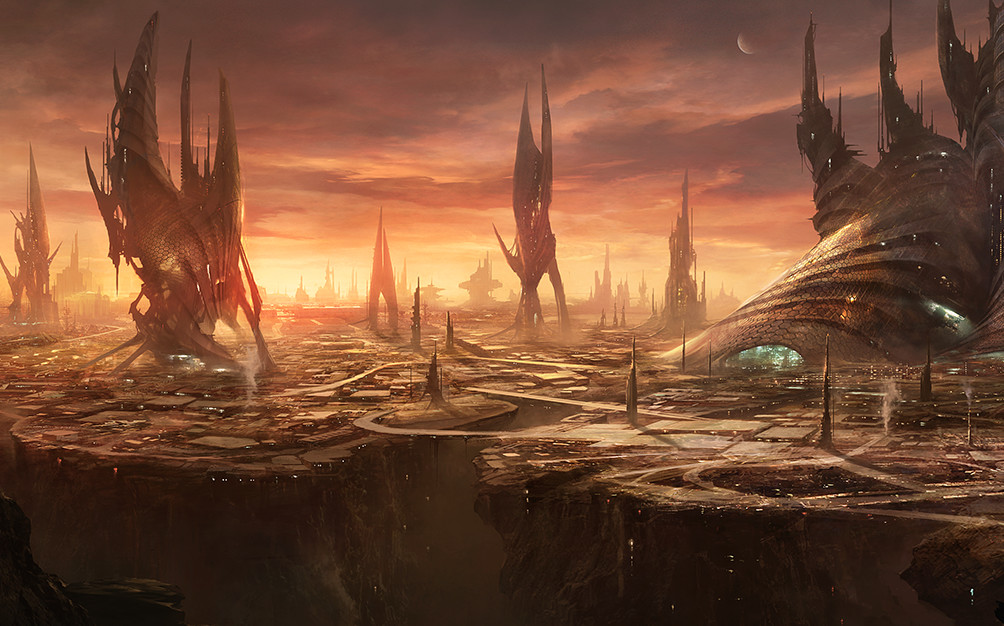The Expanse.
Me, Grand Strategy and 4X aren't on the best of terms. The reason being that I feel there's always this latent pressure to learn when and how to build... faster. Optimizing research paths, knowing when excess upkeep is necessary, etc — that every measure taken must be calculated for something that won't happen for literal hours of gameplay to come to fruition. Ensuring that every action performed is in 'the' appropriate way such to devastate and overcome any other players. They always feel multiplayer first. It's a hurdle I've not yet been able to overcome as I don't particularly enjoy that pressure. I'm not going to really bother explaining what Grand Strategy or 4X games entail specifically. As in all honestly, I find them to be a rather niche genre already. And one I feel as though I'm breaching into to boot. The term 'alien' feels appropriate for more than a few reasons. And that's largely why I've stayed away from this game.
Stellaris, for me, is set apart from your traditional Paradox endeavor. Your historical Crusader Kings, Victoria, Europa Universalis or Hearts of Iron. I like to view Stellaris through the lens of a story generator of a civilization with a malleable government with varying ideologies and values as they explore and expand into the universe. All the while building a robot army or gene splicing a species' behavior, among other things...
Sometimes I just like to look into space.
Another thing is that the game's mechanics favor expedience, for example: Events such as finding an abandoned drone facility has an air of mystery at first. What happened? What sorts of alien tech or creatures were here and why? But if you've played a number of matches, you'd know this is semi-scripted event — or rather, has a set path and quest-line. Once found, you'd know that after it's researched it'll result in the binary effects of increased mining station productivity or increased damage against drones. This is expected, but I feel it takes away from a lot of the wonder.
The 'victory' conditions are relatively complicated but ultimately end like many games in the genre do. There's a defined stardate and whomever has the highest score at that time is declared victorious. That score is then calculated by a number of factors like economic strength, technology level, number of systems and colonies within the empire — the list goes on.
That said, while the game can be difficult to learn, it remains extremely customizable. And you're able to play any match beyond the specified stardate. Often uncompleted research projects will be effectively locked beyond your borders. And should you desire to complete a quest-chain, you'll need to either broker a deal with neighboring empires to enter their borders or.. become more aggressive.
Space is really big.
These games take a looong time to complete. It's kind of a galaxy sandbox in many ways. Every game takes place within in a single galaxy. By the end of my first game, I had already put 27 hours into it. But that was with me stopping every 2 seconds to read everything. Once you've got the basics, early game stuff is relatively straightforward.
Function over form.
Basics insofar as sending science ships out to survey, building starbases around stars with natural satellites and resources, then building a mining station to start increasing stockpiles to expand. Choosing to not build starbases around less resource intensive systems in the early game when they cost more, in both resources and influence, slowing down overall expansion — keeping in mind your 'Empire Sprawl', or penalties to research and the increased cost of things based on how stretched out your resources are. This can be mitigated by increasing administrative capacity. Now, that may sound involved, but those are the basic buildings blocks. After learning that, the rest falls into place. Finding stargates/wormholes or using experimental subspace navigation for faster travel, being diplomatic with other species, getting into skirmishes with hostile alien factions. You name it. Do mind LV-426, though.
You're able to assign admirals to fleets, scientists for research, governors for sectors of your empire. You're even able to design your own ships, by default it's set to 'auto-best' — whatever the newest tech you've researched will be used. Even if it costs more, so bear that in mind.
https://steamcommunity.com/sharedfiles/filedetails/?id=2409044107
It should be noted that in order to receive achievements, you need to engage Ironman mode. But it does feature a plethora of mods using Steam Workshop integration.
Two things I learned early were to start using the return to nearest starbase function — any ships not currently doing anything should stay there to lower their overall upkeep cost. Another is that you can expand districts to create more housing instead of building more buildings. This typically will add both housing as well as jobs and generate more energy credits or minerals, etc. You can also make decisions such as distributing luxury goods, subsequently increasing amenities and happiness while inadvertently decreasing crime.
It's not the most concise UI, it can be rather wordy and number-heavy. It takes some getting used to.
https://steamcommunity.com/sharedfiles/filedetails/?id=2409010777
The wording can be odd as well, “Starbase Capacity” isn't actually affected until you've upgraded a starbase to a starport. As starbases are what actually increase your borders.
Playing pacifist comes with a few caveats, for instance early on when I was warned by a neighboring empire to not place starbases near their borders and decided to go against that warning, they felt it prudent to 'humiliate' me and destroy my very small military. Diplomacy is paramount.
https://steamcommunity.com/sharedfiles/filedetails/?id=2404746667
The Paradox of Expansion:
Paradox has set a precedent of releasing DLC that has gone unparalleled stay for EA's The Sims. Every game they make has tons of expansions. Which is great! But it's also something I can't really endorse fully. Even games they publish are subject to this expanded siphoning in games like Battletech and Cities: Skylines. This practice has also extended into IP's acquired after the fact — Prison Architect — where they've effectively repurposed ideas within popular mods into “expansions”. They've even gone as far as making Crusader Kings 2 F2P with a subscription model available.
I don't own any DLC at the time of writing this. Though, it's likely I'll acquire some in the future. It's a practice I find distasteful, but I also want more content. The hallmark of ambivalence.
However...
The ambiance of space.
The sound design is incredible and the OST is even better. In fact, I'd go as far as to say that it's one of the best I've ever heard. Right up there with FTL and Mass Effect. I found myself getting emotional from the music alone.
The Gist:
Stellaris is certainly my favorite theme for a Grand Strategy game. Admittedly, I'm a veritable n00b in the genre. Grand Strategy and 4X I've always found as a simple idea but in practice to be extremely overwhelming. Largely due to feeling like I wasn't performing the 'meta' correctly. Wherever that feeling may have falsely come from. It's something that's always present.
That said, I highly recommend the game as it checks a lot of boxes, it's got a lot of depth and replayability, it's about space/sci-fi and it runs essentially on a potato. It's the one Grand Strategy/4X I adore despite its failings.
Zitat:
If you've read this far, consider following my curation —
Station Argus